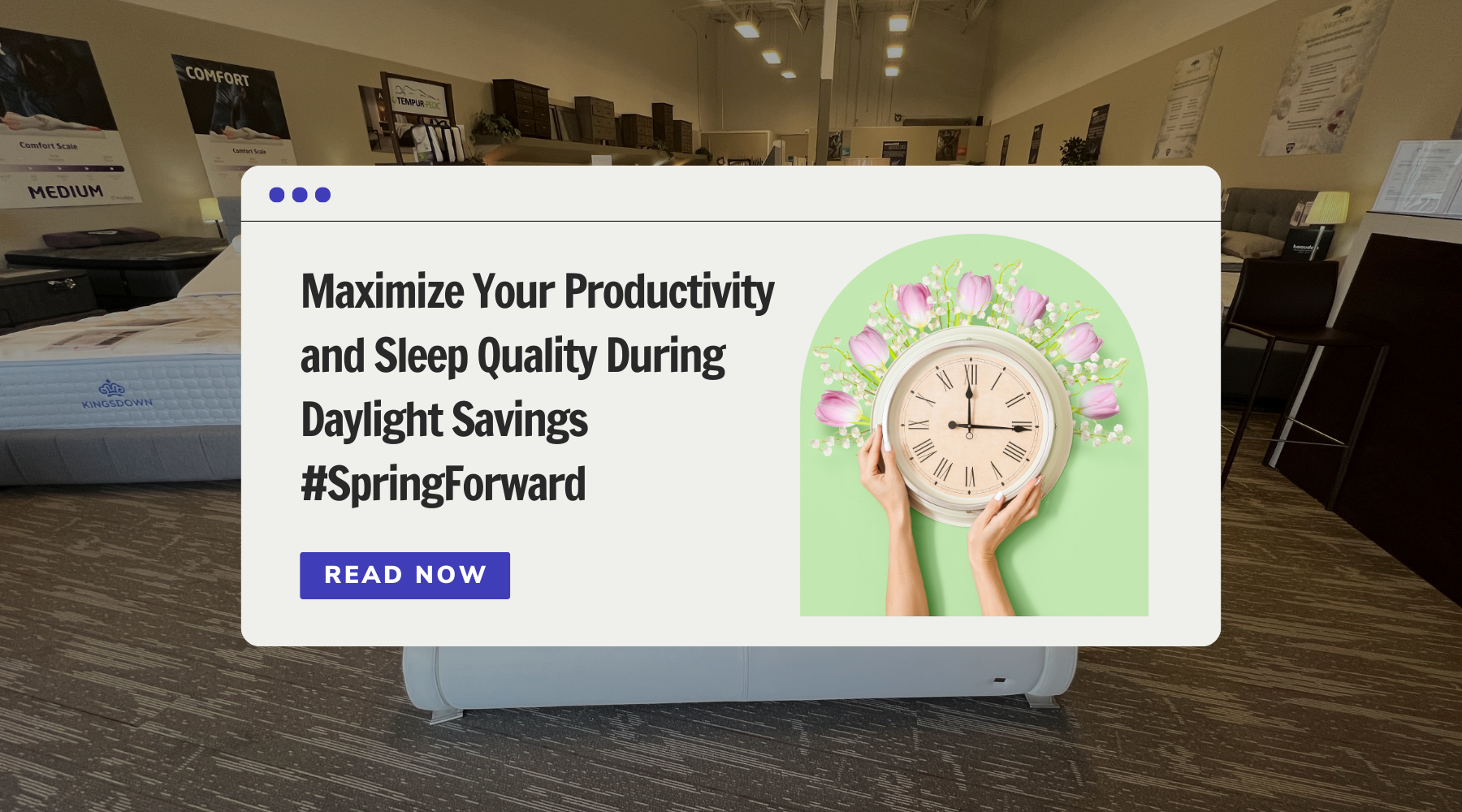As Daylight Savings Time approaches, adjusting our clocks often means more than just losing an hour of sleep. This shift can significantly affect our daily productivity and sleep quality. However, understanding these impacts and implementing effective strategies can help you navigate this transition smoothly, ensuring you remain productive and well-rested.
The Impact of Daylight Savings on Productivity
The sudden change in time can disrupt our internal clocks, leading to decreased alertness and concentration. This disruption can hinder our productivity, making tasks feel more challenging and requiring more time to complete. But fear not, as there are proven strategies to mitigate these effects and boost your efficiency during this adjustment period.
Strategies to Enhance Productivity during Daylight Savings:
✅Gradual Adjustment: Begin adjusting your sleep schedule a few days before the time change by going to bed and waking up 15-20 minutes earlier. This gradual shift can help ease the transition for your body's internal clock.
✅Maximize Natural Light Exposure: Natural light plays a crucial role in regulating our circadian rhythms. Try to expose yourself to sunlight soon after waking up and throughout the day to help reset your internal clock.
✅Prioritize Tasks: Identify your most important tasks and tackle them when you feel most alert. Understanding your body's natural rhythms can help you schedule tasks effectively, maximizing productivity.
✅Use Technology Wisely: Leverage productivity tools and apps to streamline tasks and stay organized. Set reminders, create to-do lists, and prioritize tasks to stay on track despite the time change.
✅Stay Active: Regular physical activity can boost energy levels and improve overall well-being. Incorporate movement into your day, whether it's a quick walk, stretching exercises, or a workout session.
✅Take Short Breaks: Incorporate short breaks throughout your day to recharge and prevent burnout. Studies show that brief breaks can improve focus and productivity.
✅Stay Hydrated: Dehydration can lead to fatigue and decreased cognitive function. Keep a water bottle handy and sip water regularly throughout the day to stay hydrated and alert.
Sleep Solutions for Daylight Savings
The key to navigating Daylight Savings successfully lies in maintaining quality sleep. Despite the initial challenge, several strategies can help you protect your sleep health and adapt more quickly to the new schedule.
Effective Sleep Solutions for Daylight Savings:
✅Create a Relaxing Bedtime Routine: Establishing a calming routine before bed can signal your body that it's time to wind down. Consider activities like reading, taking a warm bath, or meditation to ease the transition to sleep.
✅Optimize Your Sleep Environment: Ensure your bedroom is conducive to sleep—cool, dark, and quiet. Investing in blackout curtains and a comfortable mattress can significantly improve sleep quality.
✅Limit Stimulants: Reduce caffeine and screen time in the evening. The blue light from screens can interfere with melatonin production, making it harder to fall asleep.
Calming Bedtime Routine Checklist for Optimal Sleep During Daylight Savings
| Time | Activity | Checkbox |
|---|---|---|
| 9:00 PM | Dim the lights and turn off electronic devices | ✅ |
| 9:15 PM | Take a warm bath or shower | ✅ |
| 9:30 PM | Practice relaxation techniques (deep breathing, etc.) or Perform gentle stretches or yoga or Practice mindfulness or meditation | ✅ |
| 9:45 PM | Read a book or listen to calming music or Write in a journal or practice gratitude | ✅ |
| 10:00 PM | Use aromatherapy (lavender oil, etc.) to promote relaxation | ✅ |
| 10:15 PM | Turn off all lights and electronic devices | ✅ |
| 10:30 PM | Lights out, ready for sleep | ✅ |
While Daylight Savings Time can temporarily disrupt our sleep patterns and productivity, adopting these strategies can help minimize its impact. By preparing in advance and making a few adjustments to our routines and environment, we can maintain high productivity levels and enjoy restful sleep.
Remember, the key is to listen to your body and give it what it needs to adjust. Embrace these changes as an opportunity to refine your daily routines and enhance your overall well-being.






Leave a Comment
Your email address will not be published. Required fields are marked * Comments must be approved before they are published.